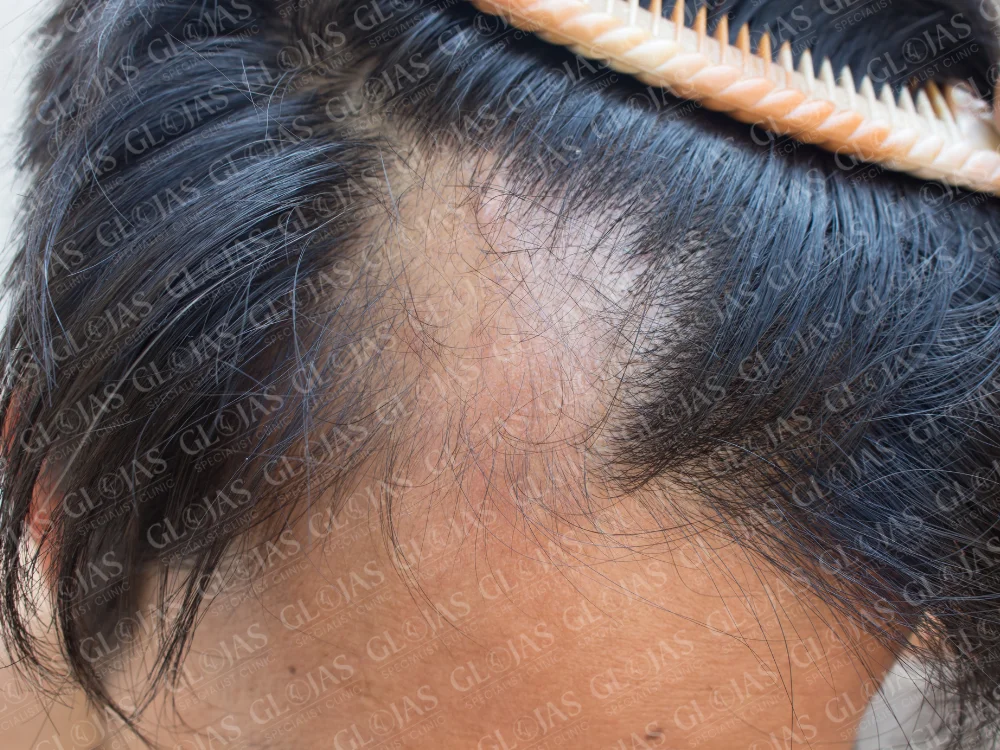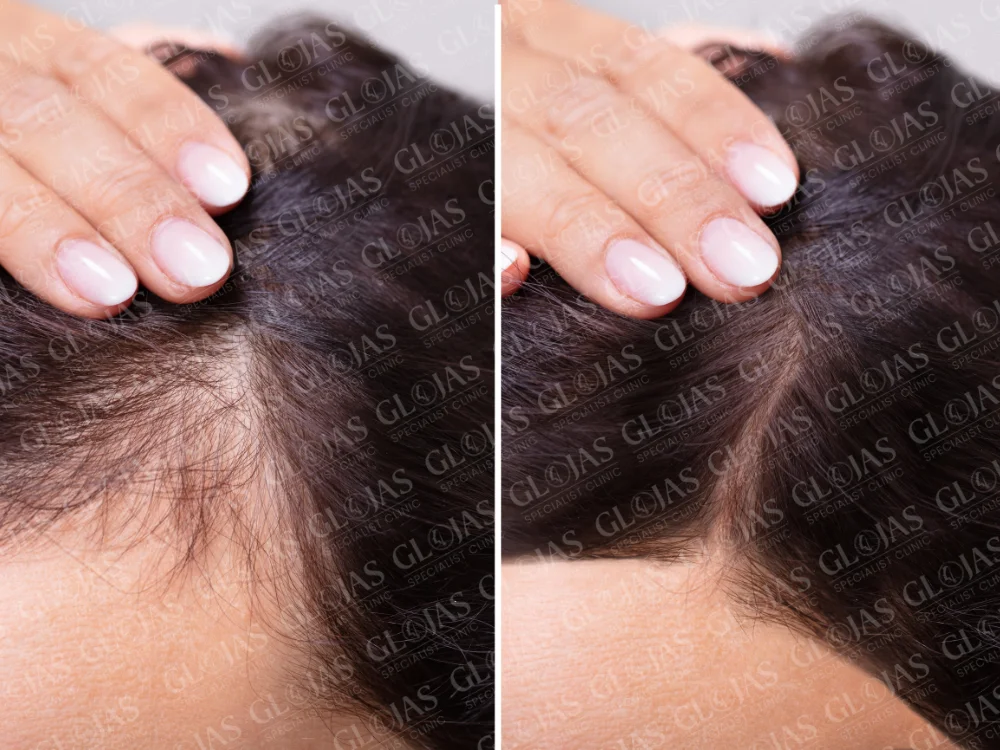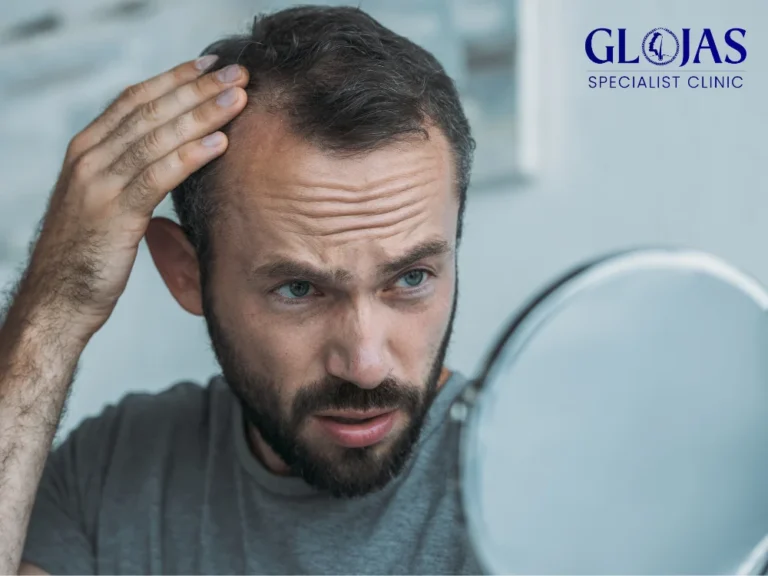Hair loss affects millions of people worldwide, bringing challenges to self-esteem and appearance. While it can be distressing, modern solutions offer hope to slow down, stop, or even reverse hair loss effectively. This guide dives into practical ways to manage hair loss, from natural remedies to medical treatments, giving you tools to address this issue and regain confidence.
What Causes Hair Loss?
Hair loss can result from a mix of genetic, hormonal, medical, and environmental factors. Identifying the root cause is crucial for choosing the most effective treatment.
Common Causes of Hair Loss
- Genetics: Hereditary hair loss, or androgenetic alopecia, affects men and women. Known as male-pattern or female-pattern baldness, this genetic predisposition often results in gradual hair thinning.
- Hormonal Changes: Hormones play a significant role in hair growth cycles. Changes, particularly during pregnancy, menopause, or due to thyroid imbalances, can lead to hair thinning or loss.
- Medical Conditions and Medications: Conditions like alopecia areata (an autoimmune disorder) and scalp infections can cause sudden or severe hair loss. Certain medications, including chemotherapy drugs, can also trigger hair loss.
- Nutritional Deficiencies: Hair health relies on essential nutrients like iron, vitamin D, and protein. Nutritional deficiencies can weaken hair and increase shedding.
- Stress and Lifestyle Factors: Chronic stress, poor diet, lack of sleep, and environmental toxins can exacerbate hair loss.

7 Effective Solutions for Managing Hair Loss
Below are seven powerful solutions for managing and reversing hair loss.
1. Scalp Massage and Stimulation
A regular scalp massage can stimulate blood flow to hair follicles, promoting growth. Incorporating essential oils like rosemary, peppermint, and lavender may enhance these effects.
- How to Do It: Use your fingertips to massage your scalp gently in circular motions for 5-10 minutes daily. You can use warm oils or hair growth serums to amplify the benefits.
2. Nutritional Support for Hair Health
Diet plays a vital role in hair growth. Foods rich in biotin, omega-3 fatty acids, iron, and vitamins A, C, D, and E help strengthen hair and support growth.
- Suggested Foods: Eggs, nuts, seeds, leafy greens, fatty fish, and fruits are excellent sources of these nutrients. Alternatively, consider a hair-specific multivitamin if you struggle to meet nutritional needs.
3. Topical Treatments and Hair Loss Shampoos
Various over-the-counter and prescription treatments address hair loss directly on the scalp.
- Minoxidil (Rogaine): This FDA-approved topical treatment stimulates hair follicles to increase growth and thickness. Consistent application is essential for effectiveness.
- Hair Loss Shampoos: Specialized shampoos containing ingredients like ketoconazole, biotin, and saw palmetto may help cleanse the scalp and reduce hair loss.
4. Laser Therapy for Hair Loss
Low-level laser therapy (LLLT) is a modern, non-invasive option for treating hair loss. Laser devices stimulate hair follicles, enhancing growth.
- How It Works: The laser energy penetrates the scalp, encouraging hair follicles to shift into the growth phase. Available as in-clinic treatments or at-home laser combs and caps, this method has shown promising results in clinical studies.
5. Medical Treatments and Prescription Medications
For those experiencing more severe hair loss, medical treatments can provide stronger and longer-lasting results.
- Finasteride (Propecia): This prescription medication is primarily for male-pattern baldness. It reduces hair loss by lowering DHT levels, the hormone associated with follicle miniaturization.
- Corticosteroid Injections: For hair loss due to autoimmune issues, corticosteroid injections can help control inflammation and stimulate hair regrowth.
6. Hair Transplant Surgery
For people with advanced hair loss, hair transplant surgery offers a permanent solution by relocating hair follicles from one part of the scalp to areas experiencing thinning.
- Types of Hair Transplants:
- Follicular Unit Extraction (FUE): Individual follicles are extracted and implanted in the thinning area.
- Follicular Unit Transplantation (FUT): A strip of hair is removed and transplanted. This technique can provide thicker coverage.
7. Managing Stress and Lifestyle Habits
Chronic stress and an unhealthy lifestyle can exacerbate hair loss. Implementing stress-management techniques and healthy habits can prevent hair loss from worsening.
- Tips for Stress Reduction: Practice mindfulness meditation, regular exercise, and adequate sleep. Reducing caffeine and alcohol consumption can also have a positive impact on hair health.

Natural Remedies to Support Hair Growth
Some people prefer to start with natural remedies, as they can be safe and cost-effective. Here are a few popular options:
- Onion Juice: Rich in sulfur, onion juice is said to improve blood circulation to hair follicles. Apply onion juice to the scalp for 10-15 minutes, then rinse.
- Aloe Vera: Known for its soothing properties, aloe vera can reduce scalp inflammation and support a healthy environment for hair growth.
- Green Tea Rinse: The antioxidants in green tea can improve hair health. Brew green tea, let it cool, and use it as a rinse after shampooing.
Preventing Hair Loss: Daily Tips
Preventive measures can go a long way in maintaining hair health. Here are daily habits that may reduce hair shedding and thinning:
- Use Gentle Hair Care Products: Opt for sulfate-free shampoos and conditioners to prevent damage to delicate strands.
- Avoid Tight Hairstyles: Tight ponytails, braids, or buns put tension on hair, leading to breakage.
- Limit Heat and Chemical Exposure: Reduce the use of heated styling tools and harsh chemical treatments. Use heat-protectant sprays when styling.
- Brush Gently: Use a wide-toothed comb to detangle wet hair, as this minimizes breakage.

Frequently Asked Questions (FAQs) About Hair Loss
Q1: Can hair loss be reversed?
Yes, many forms of hair loss, especially those caused by lifestyle, stress, or hormonal imbalances, can be managed or even reversed with appropriate treatments. However, genetic hair loss is typically progressive and may require medical treatments to manage effectively.
Q2: How long does it take to see results from hair loss treatments?
Results vary based on the treatment. For example, minoxidil can take 3-6 months of consistent use to show results, while natural remedies may require several weeks. Hair transplants and medical treatments may offer faster, more noticeable changes.
Q3: Are there side effects to hair loss medications like minoxidil or finasteride?
Some people may experience side effects from these medications. Minoxidil can cause scalp irritation, while finasteride may lead to sexual side effects in men. Always consult a healthcare provider before starting any medication.
Q4: Can hair loss be prevented?
While not all types of hair loss can be prevented, a healthy lifestyle, balanced diet, and gentle hair care practices can minimize the risk of thinning and breakage. Early intervention can help slow down genetic hair loss.
Q5: Does stress directly cause hair loss?
Chronic stress can lead to a condition called telogen effluvium, where hair falls out due to disrupted hair growth cycles. Managing stress through mindfulness and relaxation techniques can help prevent stress-related hair loss.
Q6: Can diet impact hair health?
Yes, a nutrient-rich diet supports healthy hair growth. Key nutrients include vitamins A, C, D, E, iron, and biotin. A balanced diet ensures that hair follicles receive the necessary support for growth.

